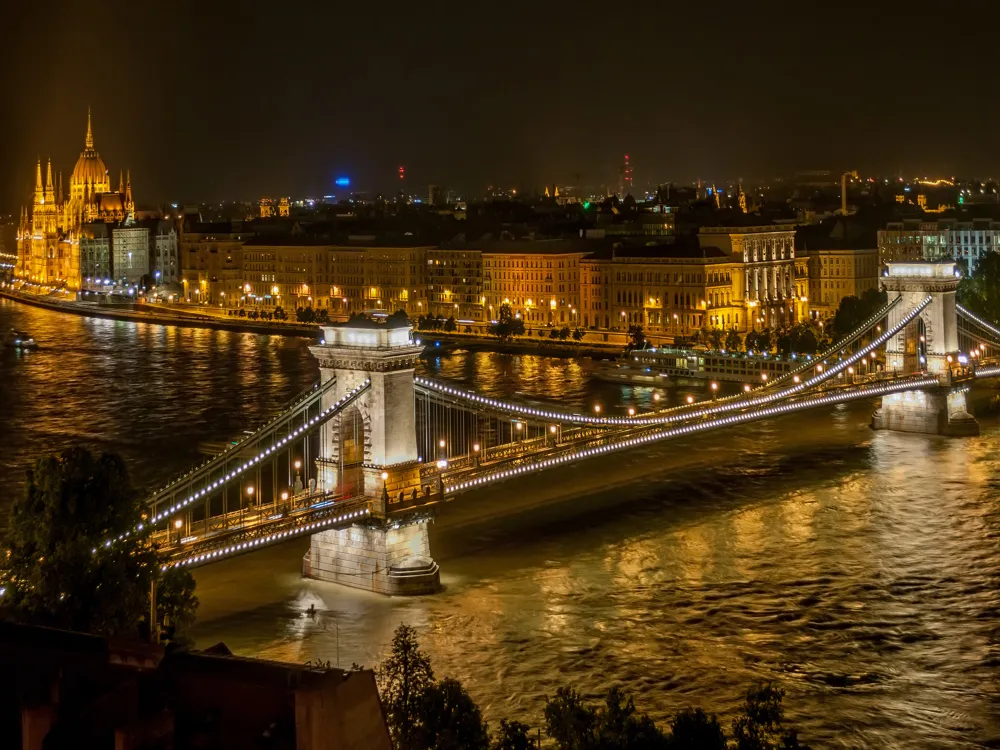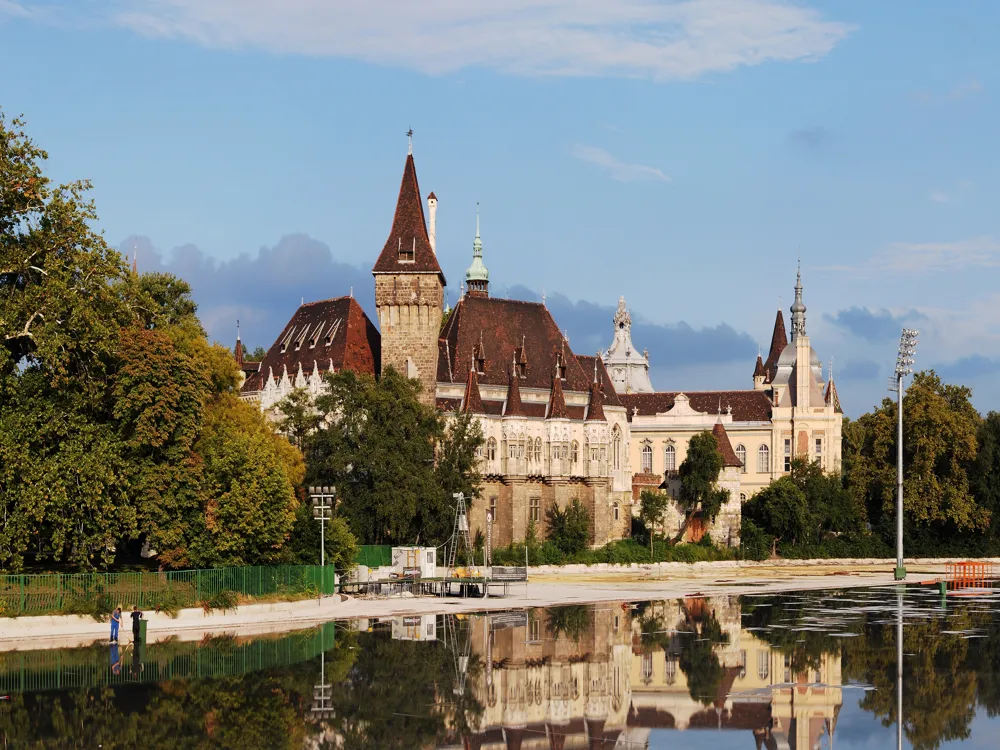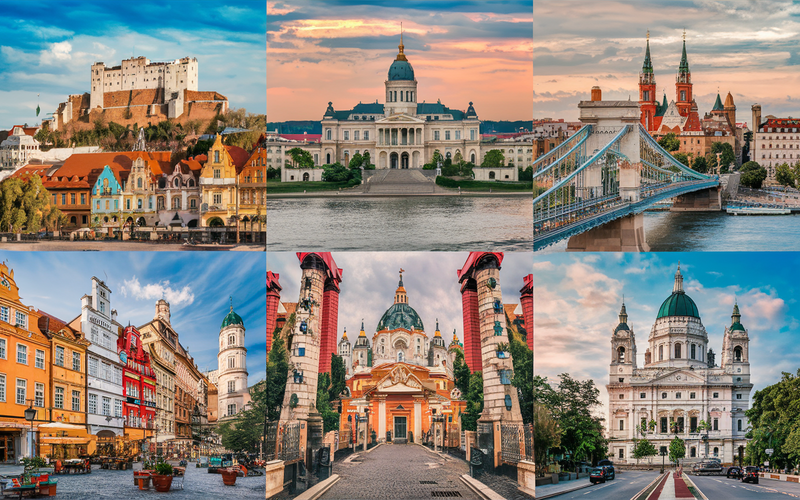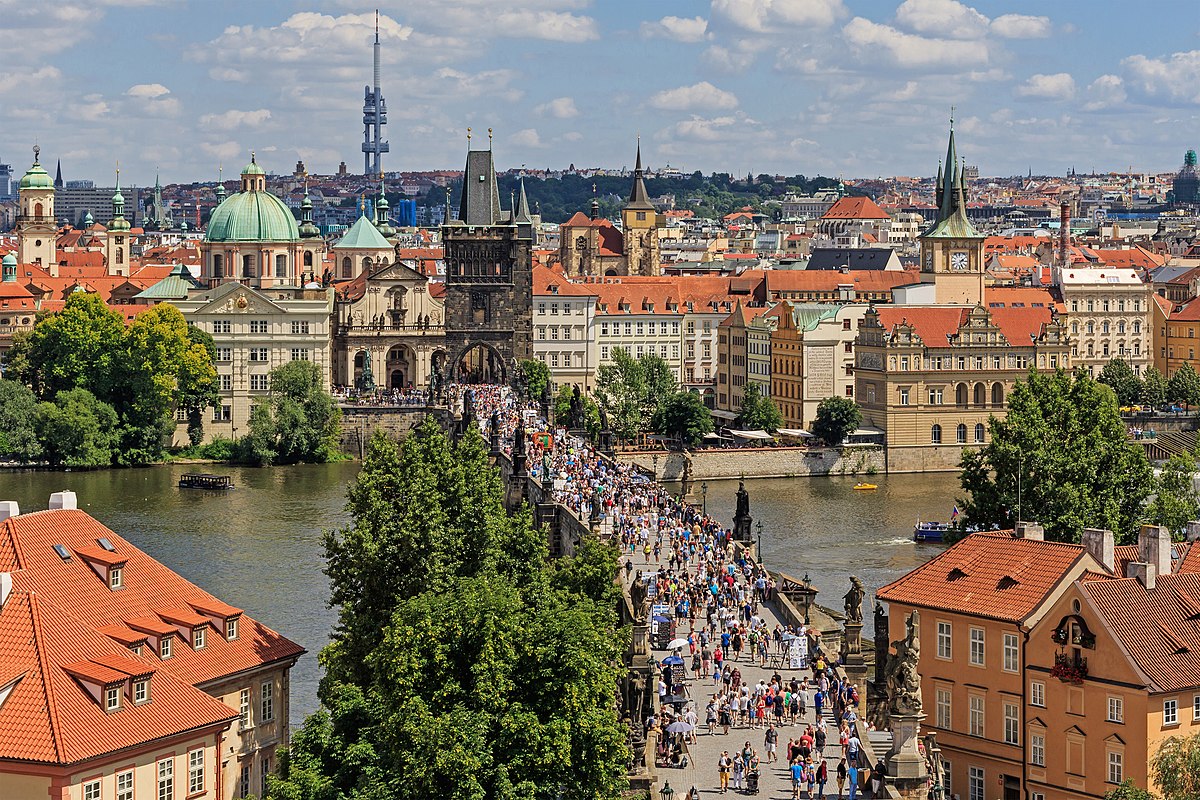Plan Your Travel To Hungary
Hungary Travel Essentials
Ideal Duration: 7 - 12 days
Currency: Hungarian Forints (HUF)
Best Time: April - September Read More
Budget: Cheap - Moderate
"A fusion of traditional and modern Europe"
Hungary Tourism
Hungary is a country rich in culture, history, and natural thermal springs, tucked away in Central Europe. Budapest, the capital, is frequently referred to as the "Paris of the East" because of its magnificent architecture, old thermal springs, and the Danube River that splits the city in half. Take in the majesty of Buda Castle, pay a visit to the striking Parliament building, and relax in the Széchenyi and Gellért Baths' restorative waters. Hungary has a thriving food scene that includes delicacies like goulash and recipes using paprika. The nation's attractive cities and wine areas, such as Tokaj and Eger, contribute to its appeal. Hungary extends a warm invitation to visitors to experience its distinctive fusion of the past and present through its cultural riches.
Must Know Before You Travel to Hungary
- Currency: Hungary uses the Hungarian Forint (HUF) as its currency. Credit cards are widely accepted, but it's a good idea to carry some cash for small purchases.
- Language: The official language is Hungarian. While many people in tourist areas speak English, it's helpful to learn a few basic Hungarian phrases.
- Transport: Budapest has an efficient public transportation system, and taxis are readily available. Trains and buses connect major cities and regions.
- Weather: Hungary experiences four distinct seasons, with warm summers and cold winters. Check the weather before your trip and pack accordingly.
- Local Cuisine: Hungarian cuisine is hearty and delicious. Try goulash, paprika chicken, and chimney cake, and enjoy local wines.
- Cultural Etiquette: Hungarians value politeness and respect. Greet with a firm handshake, use titles like "Mr." and "Mrs.," and remove your shoes when entering someone's home.
- Safety: Hungary is generally safe for travelers. Take basic precautions against pickpocketing and be aware of your surroundings.
- Visa: Check if you need a visa to enter Hungary, depending on your nationality and the purpose of your visit.
- Public Transportation:Budapest has an efficient public transportation system, including buses, trams, and the metro. Purchase a travel card for convenient access to various modes of transport.
- Local Cuisine: Try traditional Hungarian dishes like goulash, chimney cake (kürtőskalács), and lángos. Explore local markets for authentic flavors.
- Historical Sites: Visit iconic sites like Buda Castle, Fisherman's Bastion, and Matthias Church in Budapest. Explore historic towns like Eger and Pécs for a glimpse of Hungary's past.
- Outdoor Activities: Enjoy outdoor activities in Hungary's national parks, such as hiking in the Bükk Mountains or exploring the thermal caves in Aggtelek. The Danube Bend offers scenic landscapes.
- Danube River Cruises: Consider a Danube River cruise for breathtaking views of Budapest and the surrounding countryside. Cruises often include stops in charming riverside towns.
- Thermal Baths: Experience Hungary's famous thermal baths. Gellért and Széchenyi Baths in Budapest are popular choices, offering relaxation in thermal pools and spa facilities.
- Wine Regions:Hungary has renowned wine regions. Explore Eger for its red wines or Tokaj for its sweet dessert wines. Wine tastings are available in vineyards across the country.
- Festivals and Events: Check for local festivals and events happening during your visit. Budapest hosts events like the Budapest Wine Festival and the Budapest International Documentary Festival.
Tourist Places to Visit In Hungary
Budapest
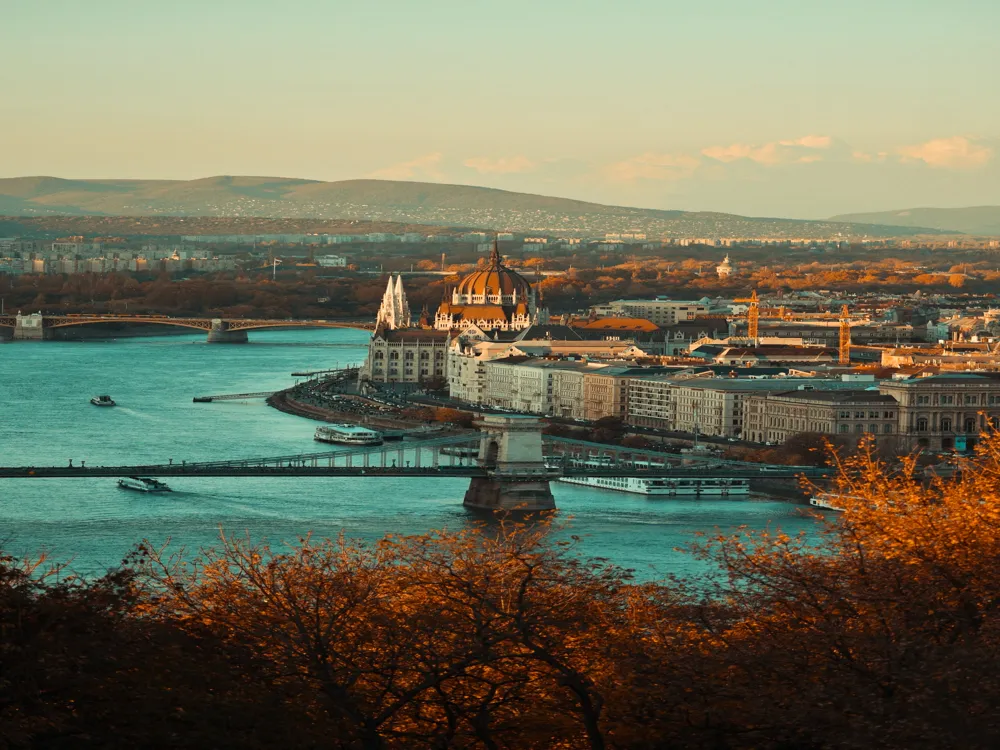
Hungary Travel Packages
Compare quotes from upto 3 travel agents for free
View All Packages For Hungary
More on Hungary Travel
All collections about Hungary
Best time to visit Hungary
The best time to visit Budapest is from March through May. The weather is idyllic, and the city isn't overcrowded. The Cherry Blossom Festival and the Japanese Garden on Margaret Island are blooming. With its beautiful flowers, Easter celebrations and traditions are in full swing. A good time for walking tours and bar-hopping of BudapestÕs best ruin pubs. A number of spring festivals take place, centered around food, wine, and music. With its beautiful flowers, Easter celebrations and traditions are in full swing. A good time for walking tours and bar-hopping of BudapestÕs best ruin pubs. A number of spring festivals take place, centered around food, wine, and music.
Top Stories about Hungary Tourism
All collections about HungaryRead More on Hungary Travel
Exchanging money in Hungary:
It's crucial to comprehend the Hungarian Forint (HUF), the country's currency, while travelling to Hungary. All around the nation, banks, exchange offices, and ATMs offer easy access to currency exchange. Comparing prices will help you find the best offer. Although credit cards are often accepted, it is helpful to have cash on hand, particularly in smaller towns. Always examine the conversion rates and beware of hidden expenses. There are several ATMs that make it easy to take out forints. Although employees in big cities understand English, knowing a few simple words in Hungarian might be useful when exchanging currencies.
Nightlife in Hungary:
Hungary has a lot of exciting nightlife, particularly in Budapest. Following dark, the capital city comes alive with a plethora of pubs, clubs, and entertainment places. Budapest is home to the only ruin pubs, which are must-see locations with a bohemian ambiance housed in abandoned buildings. Night views from the Danube riverbank promenade are breathtaking. You can easily get Hungarian wines and local beers there, which makes it a great place to go bar-hopping. Live music is available in many different venues, ranging from contemporary rock to traditional folk. Discover Budapest's ruined pubs and take in the vibrant atmosphere for a night to remember.
Shopping in Hungary:
Hungary boasts a diverse shopping scene, offering a mix of traditional markets, modern malls, and boutique stores. Budapest's Great Market Hall is a top choice, where you can find fresh produce, local delicacies, and handmade crafts. Váci Street is renowned for its upscale shops, while Andrássy Avenue is lined with designer boutiques. Antique and vintage enthusiasts will appreciate Falk Miksa Street, known for its art galleries and collectibles. Don't forget to pick up Hungarian souvenirs like paprika, porcelain, and embroidery. Sunday flea markets are perfect for unique finds. Hungary provides an enjoyable shopping experience for all tastes and budgets.
Festivals in Hungary:
Hungary celebrates its culture, music, and customs all year long with a wide variety of festivals. The best wines and cuisine in the nation are shown at the Budapest Wine Festival, which takes place at Buda Castle. Buda Island's Sziget Festival, one of Europe's biggest music events, offers a diverse environment and a roster of worldwide performers. Consider going to the Busójárás in Mohács, a funfair with intricate masks and folk traditions, for a taste of Hungarian folklore. Fans of the arts and theatre are catered to by both the Budapest International Documentary Festival and the Budapest Fringe Festival. Hungary has festivals that appeal to all tastes, whether it be music, wine, or regional customs.
Hygiene in Hungary:
Hungary keeps its sanitation and hygiene standards quite high. Throughout the nation, tap water is safe to drink, and even in rural regions, public facilities are usually kept up-to-date and sanitary. Food safety laws are strictly adhered to in restaurants and other eating establishments, guaranteeing secure dining experiences. Hand sanitizer stations are common, especially in tourist locations, and mask wearing has been extensively reported during the COVID-19 epidemic. It is recommended to follow local health regulations and practice good personal hygiene when travelling. All things considered, Hungary prioritises hygiene and health, making it a secure and welcoming travel destination.
Tips for visiting Hungary:
- When visiting Hungary, it's essential to acquaint yourself with local customs and etiquette. Greetings often involve a firm handshake and maintaining eye contact.
- Punctuality is appreciated, and it's customary to remove your shoes when entering someone's home.
- Tipping is common in restaurants, typically around 10-15% of the bill. Hungary's public transportation is efficient, with trams, buses, and the metro being convenient options for getting around.
- Learning a few basic Hungarian phrases can go a long way toward enhancing your experience. Lastly, be sure to try traditional Hungarian dishes like goulash and chimney cake for a culinary adventure.
Food of Hungary:
The food of Hungary is a delectable fusion of Eastern and Central European flavours. An essential component that gives many recipes a deep, fiery flavour is paprika. Goulash, a substantial stew of meat and vegetables, is a traditional Hungarian dish. A common street dish is langos, which is deep-fried flatbread topped with a variety of toppings. Hortobágyi palacsinta, savoury pancakes stuffed with meat and topped with a creamy sauce, is another favourite. Don't miss the renowned Dobos torte for dessert and Hungarian sausages. Go with Hungarian wines with your dinner, especially the sweet dessert wine Tokaji. Hungary offers a rich and flavorful gastronomic experience when dining.
Photos of Hungary
All Country Photos Hungary
Popular Questions And Answers on Hungary
What are the must-visit attractions in Hungary?
Hungary boasts many must-visit attractions, including Budapest (Parliament, Buda Castle, and the Danube River), the historic town of Eger, Lake Balaton, and the stunning Hungarian countryside.
What's the best time to visit Hungary?
The best time to visit Hungary is during the spring (April to June) and autumn (September to October) when the weather is pleasant, and tourist crowds are smaller.
Do I need a visa to travel to Hungary?
If you're an EU or EEA citizen, you don't need a visa to enter Hungary. Travelers from other countries should check Hungary's visa requirements before their trip.
What's the currency in Hungary?
The official currency of Hungary is the Hungarian Forint (HUF). It's recommended to have some cash on hand, although credit cards are widely accepted.
What is Hungarian cuisine known for?
Hungarian cuisine is famous for dishes like goulash, paprika chicken, and chimney cake. Don't forget to try traditional Hungarian wines and pálinka (fruit brandy).
Is it safe to travel in Hungary?
Hungary is generally a safe destination for travelers. Exercise common-sense precautions, and be aware of pickpocketing in crowded areas.
What language is spoken in Hungary?
The official language is Hungarian. English and German are commonly spoken in tourist areas, making it relatively easy for travelers to communicate.
How can I get around in Hungary?
Hungary has an efficient public transportation system, including trams, buses, and the Budapest Metro. For longer distances, consider taking trains or renting a car.
What are some cultural customs to be aware of in Hungary?
When in Hungary, it's customary to greet with a handshake, and it's polite to wait for the host to initiate toasts during meals. Tipping is also expected in restaurants and for services.
Are there any specific festivals or events in Hungary worth attending?
Hungary hosts numerous festivals and events throughout the year, such as the Budapest International Wine Festival, Budapest Opera Ball, and the Budapest Christmas Fair, which offer unique cultural experiences.

_2015-02jpg.webp)
